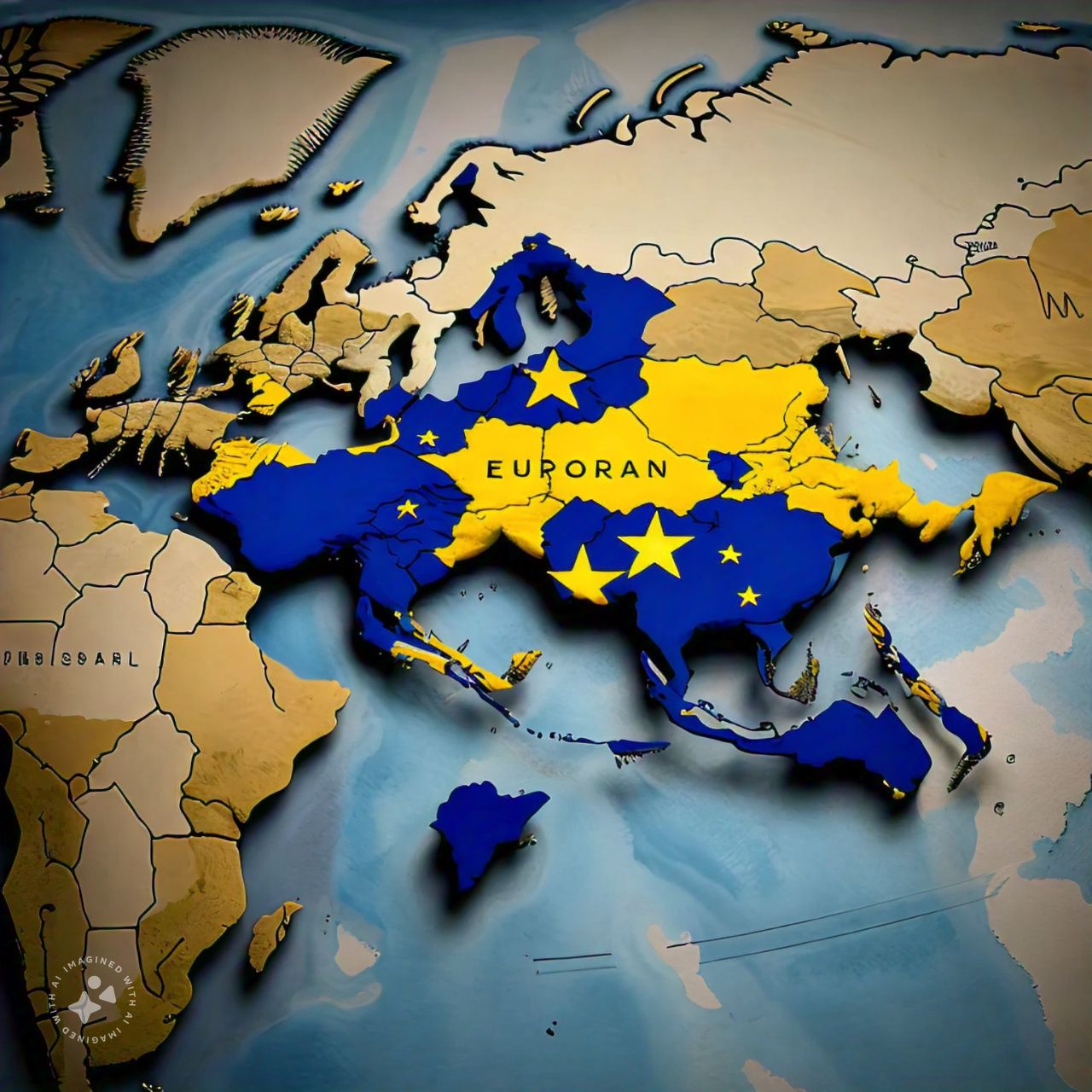Success Education Consultants
Europe Study Visa
Europe, From the academic excellence of countries like Germany, France, and the Netherlands to the international environment fostered by cities like London, Madrid, and Paris, studying in Europe offers students an unmatched opportunity to grow academically, professionally, and personally.
- World-Class Education
Europe is home to some of the best universities and academic institutions in the world. Renowned educational centers in the UK, Germany, France, the Netherlands, and more, offer innovative programs across a wide range of disciplines. Whether you’re studying engineering in Germany, business in France, or arts in the UK, the quality of education is unparalleled. - Affordable Education Options
Europe offers both public and private institutions that provide affordable education, especially compared to countries like the USA or Australia. Many European universities have low or even no tuition fees, particularly in countries like Germany and Norway. Additionally, students can enjoy scholarships and financial aid options to support their studies. - Cultural Diversity
European cities are diverse and welcoming, making them ideal for students from all over the world. This exposure broadens your worldview and prepares you for success in an increasingly globalized job market. - Post-Graduation Work Opportunities
Many European countries offer work opportunities for students after they complete their studies. For instance, countries like Germany and France have programs that allow international students to stay and work for a certain period after graduation. - Travel Opportunities
Europe’s proximity and connectivity make it the perfect base for travel. Students in Europe can easily explore neighboring countries, experience different cultures, and learn new languages. Traveling within the Schengen Area is easy and affordable, allowing students to broaden their horizons during their studies. - High Quality of Life
European countries offer excellent healthcare, public services, and safety, making them attractive destinations for international students. Many cities in Europe consistently rank among the best in terms of quality of life, making it a great place to live and study.
- Admission to a Recognized Institution
You must be accepted by a recognized university or educational institution in Europe. You’ll need to provide proof of your admission during the visa application process. - Valid Passport
Your passport should be valid for at least six months beyond your intended stay in Europe. - Health Insurance
You will need to have health insurance coverage that meets the minimum requirements for international students in your chosen European country. - Language Proficiency
While many European universities offer programs in English, proficiency in the language of the country you are applying to might also be required. Students may need to provide proof of language proficiency through tests like IELTS, TOEFL, or other standardized exams. - Genuine Intent to Study
You must demonstrate your genuine intent to study and show that you will return to your home country after completing your studies.
1.Can I Work While Studying in Europe?
Yes, most European countries allow students to work part-time while studying. However, this may vary by country and institution.
2. What Are the Tuition Fees in Europe?
Tuition fees vary depending on the country and institution. Countries like Germany and Norway have no tuition fees for international students at public universities, while other countries like the UK or France have relatively low fees compared to countries like the USA or Australia. Scholarships are also available for international students.
3. Can I Stay in Europe After Completing My Studies?
Yes, many European countries offer post-study work visas for international students, allowing them to stay and work in the country for a specified period after graduation. This allows you to gain international work experience and broaden your career prospects.
4. How Do I Apply for a Study Visa for Europe?
To apply for a study visa for Europe, you’ll need to submit the following documents: an offer letter from a recognized institution, proof of financial support, language proficiency, a valid passport, health insurance, and proof of accommodation. The exact process and requirements may differ by country.
QUICK FACTS ABOUT EUROPE
Capital
Brussels (European Union's capital)
Population
- 748 million (2024 estimate)
Official Languages
- Finnish, Swedish
Location
- Varies by country (e.g., English, French, German, Spanish, Italian, Dutch)
Popular Sports
- Football (Soccer), Basketball, Rugby, Tennis, Ice Hockey, Handball
Major Cities
London, Paris, Berlin, Rome, Madrid, Amsterdam, Prague, Vienna, Athens

Government
Mix of constitutional monarchies, republics, and federations, with the European Union (EU) comprising 27 member states
Religions
- Christianity (Catholicism, Protestantism, Eastern Orthodoxy), Other (Islam, Judaism, secular, etc.)
Currency
Euro (EUR) in 20 EU countries (1 EUR = ~90 INR as of November
Climate
- Winter (December to February): Average -1°C to 5°C, depending on region.
- Summer (June to August): Average 15°C to 25°C, varies widely by region.
Ethnic Composition
- Predominantly European ethnicities, with significant immigrant populations, particularly in large cities.
EUROPE HIGHLIGHTS
World-Class Education
Europe is home to some of the world’s oldest and most prestigious universities, such as the University of Oxford, University of Paris, ETH Zurich, and LMU Munich.
Rich Cultural Heritage
Europe's deep history offers students opportunities to explore ancient landmarks, museums, and cultural festivals.
Economic & Political Stability
Many European countries offer political stability, quality healthcare, and business-friendly environments for international students.
Gateway to Global Careers
Europe is a hub for innovation, research, and industries such as technology, finance, and engineering, offering excellent career opportunities post-graduation.
Multicultural Environment
Europe's cosmopolitan nature provides students with exposure to diverse cultures, languages, and professional networks
Student-Friendly Cities
Cities like Berlin, Paris, Barcelona, and Amsterdam are known for vibrant student life, affordable living, and rich cultural experiences.
Admission Prerequisites for European Programs
Postgraduate Programs
- Degree: A recognized undergraduate degree (usually 2:1 or equivalent).
- English Proficiency: IELTS (6.5–7.0), TOEFL, or equivalent (depending on the country).
- Transcripts: Official academic records from previous studies.
- Statement of Purpose (SOP): A personal essay explaining academic and professional aspirations.
- Letters of Recommendation (LORs): 2–3 academic or professional references.
- Work Experience: Required for business, management, and certain specialized programs.
- Portfolio: Required for creative/design-based programs (e.g., architecture, art).
Bachelor’s Level Courses
- Qualification: Completion of high school or equivalent with the necessary grades (varies by country).
- English Proficiency: IELTS (6.0–6.5), TOEFL, or equivalent.
- Transcripts: High school academic records.
- Personal Statement: Explains motivations for the chosen course.
Preparatory Master’s Courses
- Undergraduate Degree: Recognized bachelor’s degree from an accredited institution.
- English Proficiency: IELTS (5.5–6.0), TOEFL, or equivalent.
- Academic Record: Transcripts from prior studies.
- Statement of Purpose: Explanation of why preparatory courses are needed for master’s entry.
International Year One/Foundation Year
- Qualification: Completion of high school or equivalent with a strong academic background.
- English Proficiency: IELTS (5.0–6.0), TOEFL, or equivalent.
- Transcripts: Academic records from high school.
- Personal Statement: Explanation of interest in the foundation course and future goals.
Additional Prerequisites to Study in Europe
Visa Requirements:
- Apply for a Student Visa (Schengen visa for most European countries, or a national student visa).
- Obtain an Admission Letter from a recognized European university.
- Provide proof of financial capability to cover tuition and living expenses.
Financial Requirements:
- Provide proof of funds (varies by country; usually around €8,000–€12,000 per year for living expenses).
- Submit bank statements and other financial documents.
Health and Insurance:
- For non-EU students: Health insurance (either private or through the university) is usually required.
- EU students can access public healthcare through the European Health Insurance Card (EHIC).
English Language Requirements:
- IELTS/TOEFL/PTE scores for non-native English speakers.
- Some European universities may also offer language preparatory courses for students with lower English proficiency.
Interview (if applicable):
Required for competitive programs (e.g., medicine, business).
Entrance Exams:
Specific exams for certain courses (e.g., GRE for business, GMAT for management).
Recommendation Letters:
Academic or professional references may be required.
Portfolio or Audition:
Required for art, design, architecture, or music courses.
Recognition of Prior Learning (RPL):
Assessment of non-equivalent qualifications or work experience may be required.
Curriculum Vitae (CV):
Required for postgraduate programs or work-experience-based courses (e.g., business, management).
European Student Visa Procedure
- Apply for a Student Visa at the embassy or consulate of the destination country in your home country.
- Submit visa application with supporting documents such as proof of admission, financial proof, passport, and health insurance.
- Letter of Admission from the university.
- Proof of Funds for living expenses and tuition fees.
- Valid Passport.
- Health Insurance (for non-EU students).
- English proficiency test scores.
Some European countries require biometric data for visa applications.Processing time varies but typically takes 2–8 weeks depending on the country.

Start Your Journey Today!
Studying in Europe is the key to unlocking new academic and career opportunities. Let Success Education Consultants be your trusted partner in making your dream of studying in Europe a reality.
📞 Contact Us Today: +91 88728-38422 / 01672-500422
📍 Visit Us: SCF-28, First Floor, Kaula Park, Near Harman Hotel, Sangrur
Get in touch today to start your application and embark on an exciting educational journey in Europe!
Note: This data is taken from resource websites. The actual data may vary.



